UN Women champions gender equality at the Regional Forum for Sustainable Development 2024
Date:
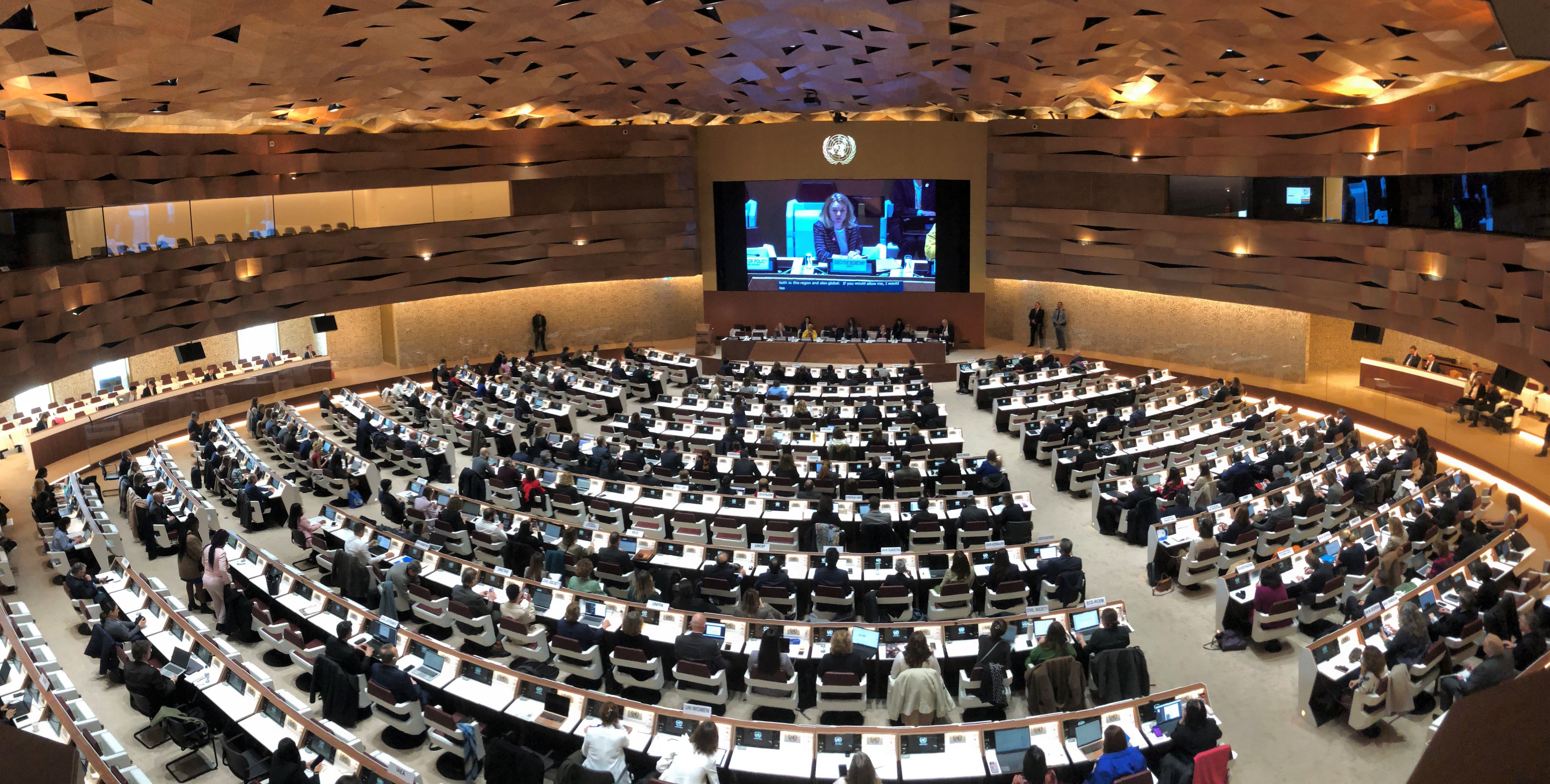
13 - 14 March - Geneva, the United Nations Economic Commission for Europe (UNECE) hosted the Regional Forum on Sustainable Development for the UNECE region, serving as the UN’s key platform for policy debate, exchange of good practices, and peer learning on the implementation of the 2030 Agenda for Sustainable Development Goals (SDGs).
Held amidst multiple crises, this year’s RFSD addresses the theme “Reinforcing the 2030 Agenda for Sustainable Development in the Economic Commission for Europe region in times of multiple crises: The effective delivery of sustainable, resilient and innovative solutions". It brought together a diverse array of stakeholders to catalyze action, find solutions and facilitate peer learning to achieve sustainable transformation in the UNECE region.
Discussions were informed by the latest SDG Progress Report – Sustainable Development in the UNECE region: Facing a Headwind in 2024 – prepared by the UNECE Statistical Division in cooperation with the Regional Coordination Group on Data and Statistics for Europe and Central Asia.
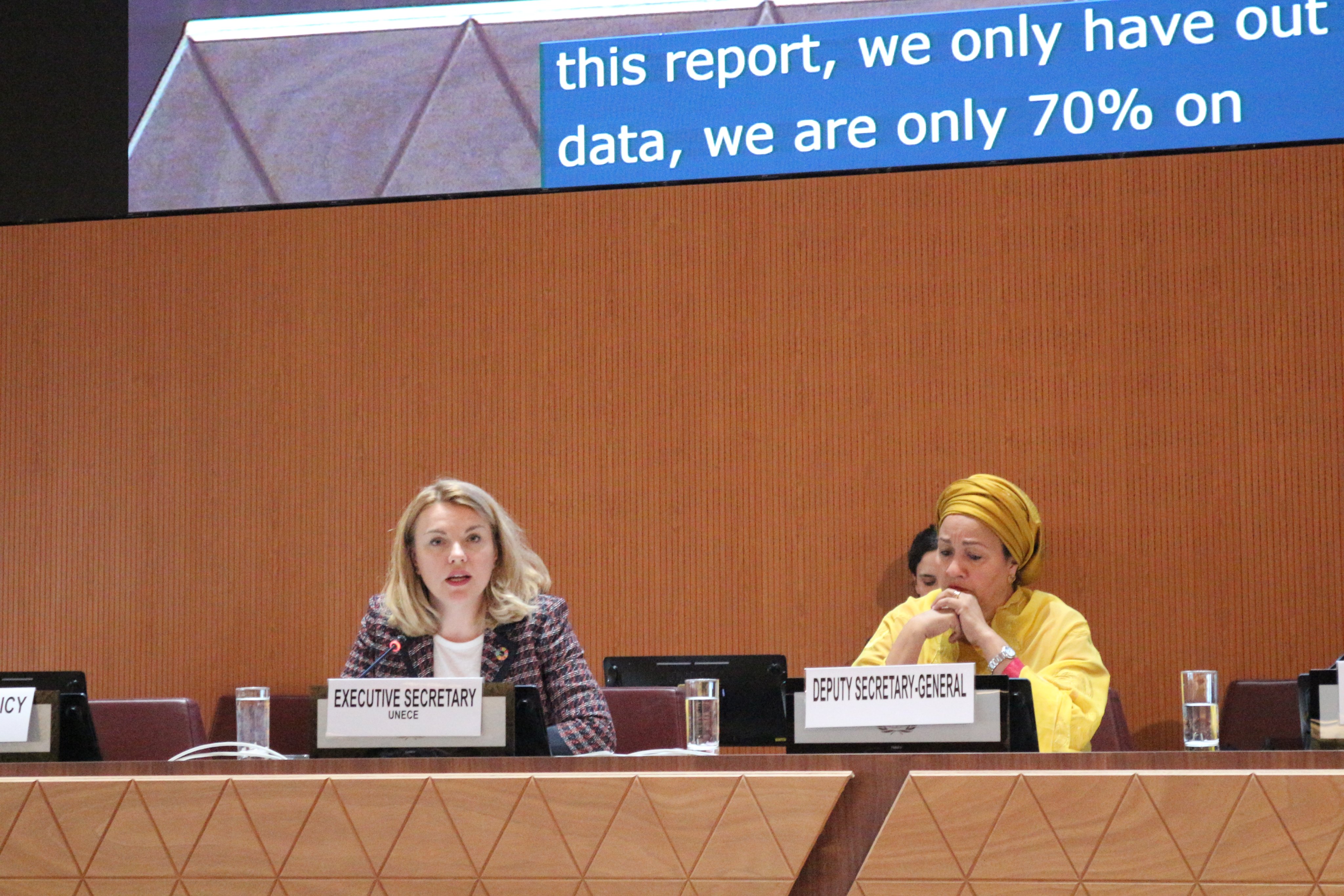
Tatiana Molcean, the Executive Secretary of UNECE, mentioned that despite notable progress, insufficient data continues to hinder the ability to assess the situation, as sufficient national data to track change over time are available only for 117 out of 169 SDG targets. Moreover, she underscored the need for intensified efforts towards achieving gender equality and increase women’s participation at the decision-making levels across the region. “Accelerating progress toward SDGs requires strong and inclusive institutions. The positive news is that decision-making bodies across the region are becoming more reflective of the population they represent. However, progress in diversity in representation remains insufficient, as women and young fall behind,” stated Tatiana Molcean.
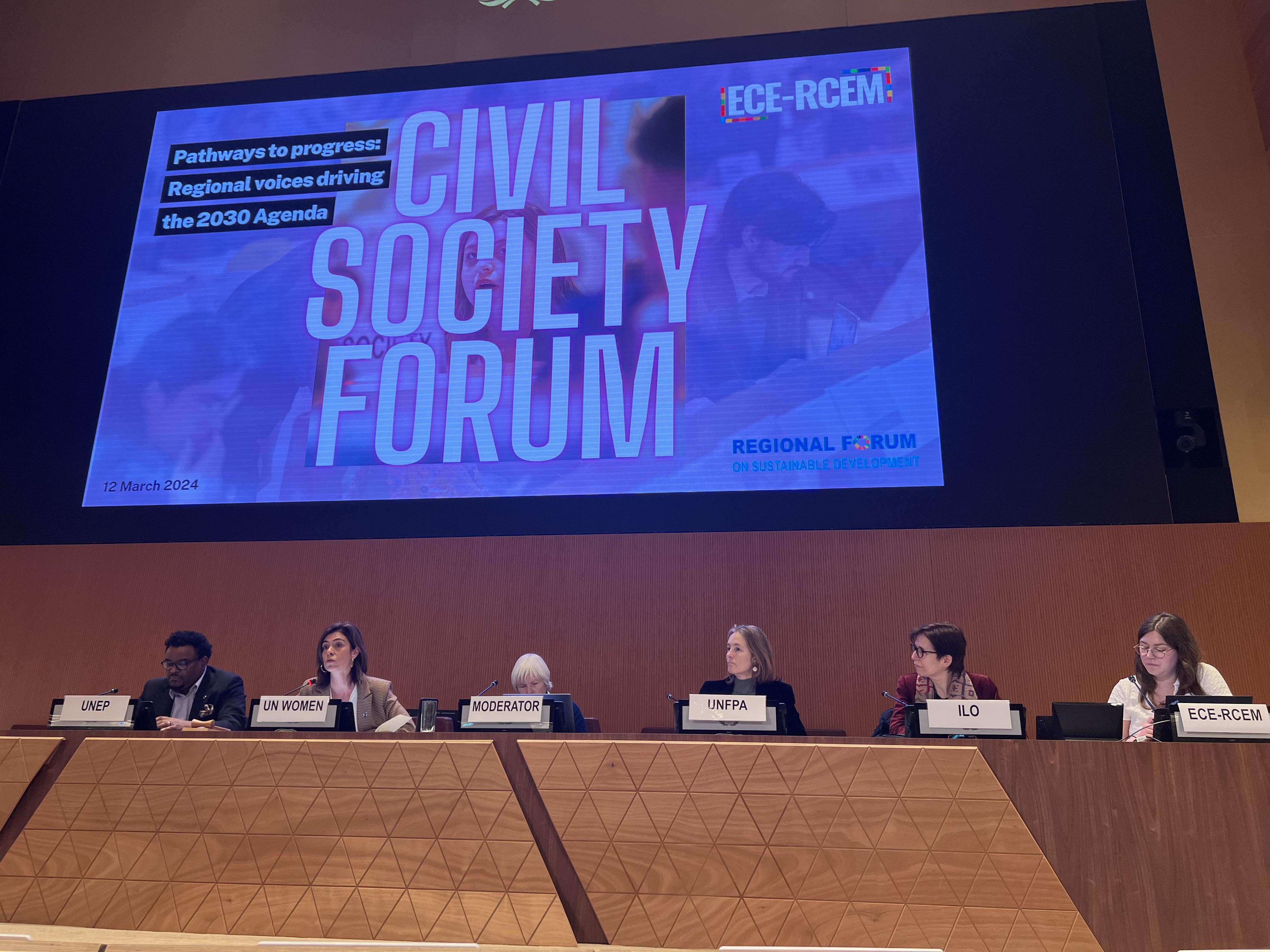
On March 12, Belen Sanz, the UN Women Regional Director for Europe and Central Asia, participated in the Civil Society Forum ahead of RFSD 2024, engaging with over 30 civil society representatives. During the session with UN Agencies, she emphasized the pivotal role of civil society expertise and voices in driving progress and advancing gender equality.
“For UN Women, fostering collaboration with civil society is crucial as we advance towards 2030 Agenda. We're committed to listening to the CSO voices as we leverage our triple mandate - normative support, UN system coordination, and operational activities - to drive immediate and lasting action, ensuring every woman and girl thrives with no one left behind,” stated Belen Sanz.
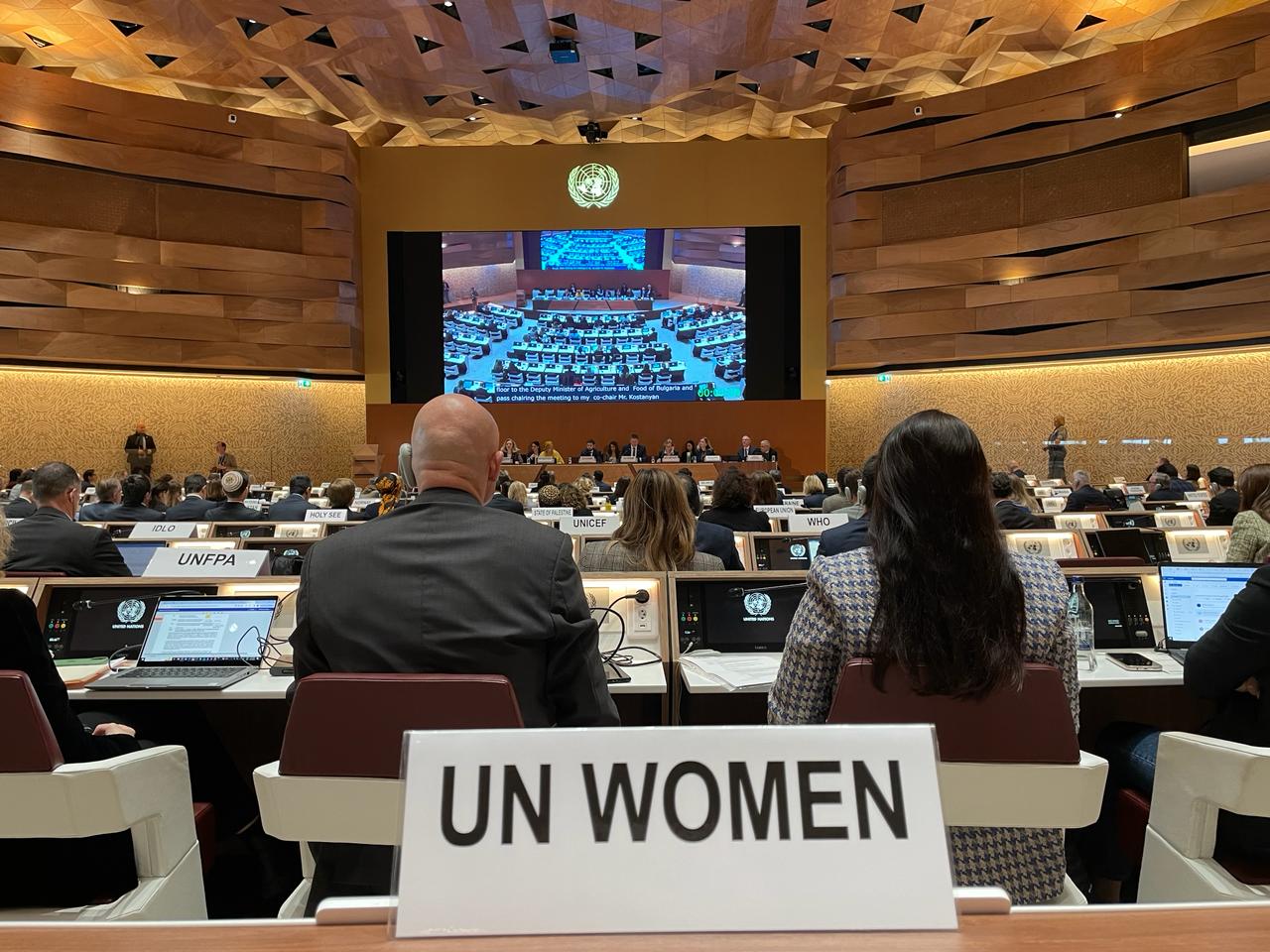
This year, UN Women Europe and Central Asia (ECA) contributed to three peer-learning roundtables to ensure that the gender perspective is included in the discussions throughout the RFSD 2024.
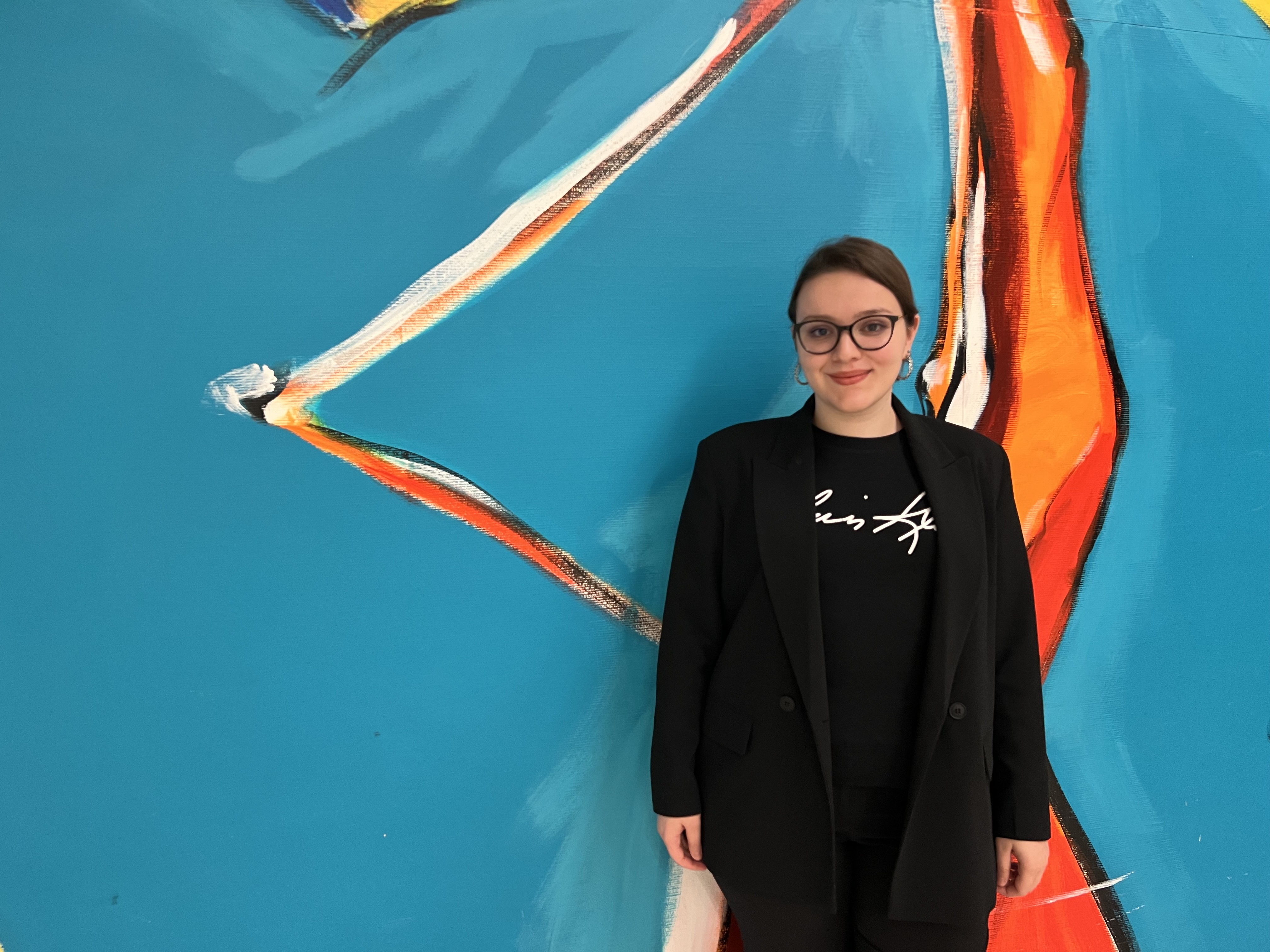
On March 13, Ema Meçaj, youth activist and representative of the United Nations in Albania Youth Advisory Group, was suppported by UN Women ECA to participate and speak during the peer learning round table on SDG 1, focusing on preparing social protection systems to respond to the poverty impacts of the climate crisis and green transitions. “To achieve social protection and combat poverty in local communities, stakeholders should consider three solutions: actively engaging young people in the decision-making processes; ensuring financing for policies is gender-sensitive and inclusive of all women and girls; and coordinating disaster-risk reduction policies and strategies carefully,” said Ema Meçaj.
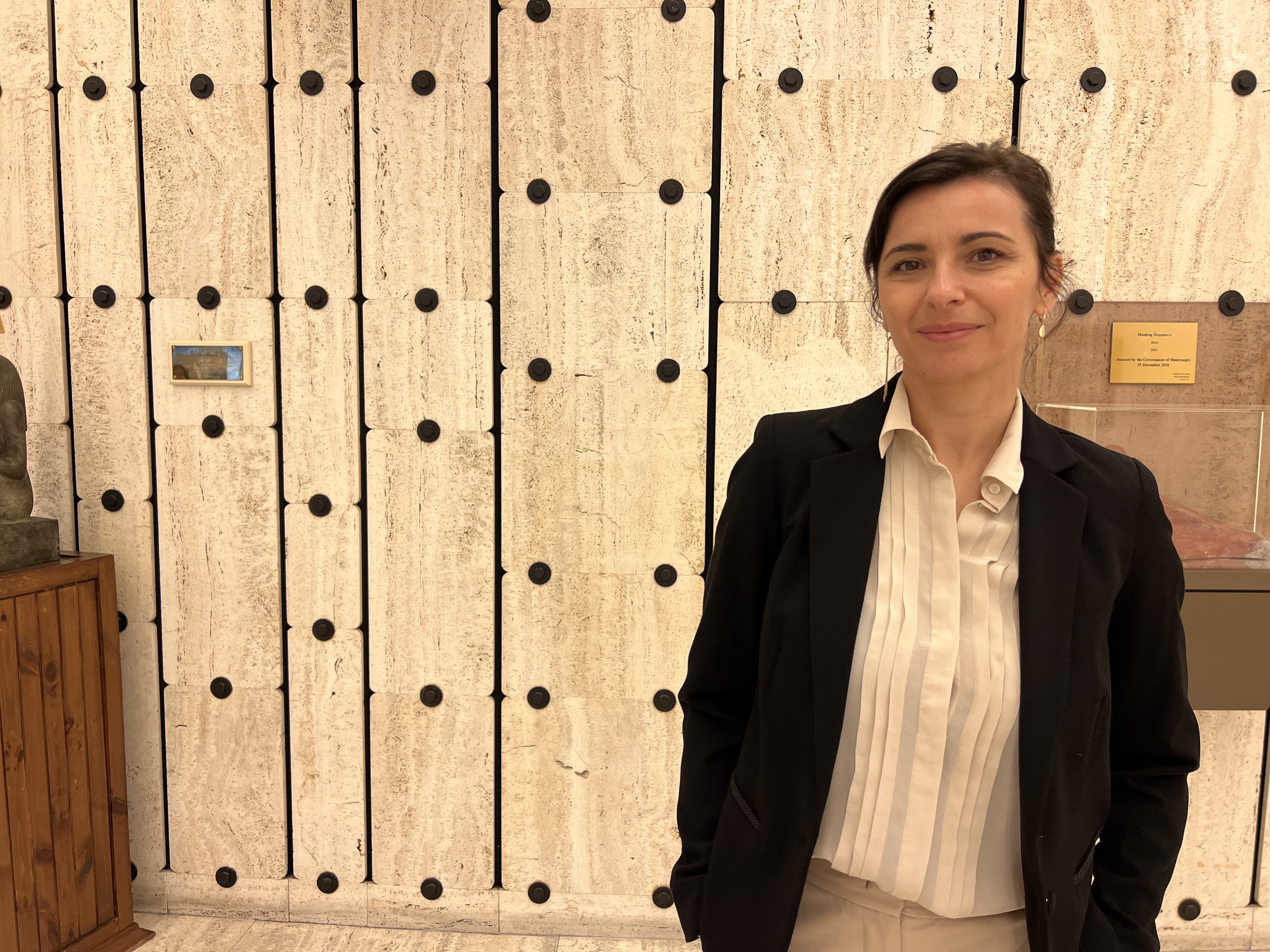
Jasminka Young, co-founder and programme director of RES Foundation from Serbia, a non-governmental organization specialized in policy making in energy and climate change, attended the second roundtable on SDG 13, titled “Solving the Rubik´s cube of the planetary crisis: lining up policy solutions for climate riskds and biodiversity loss.” Jasminka Young the imperative of integrating “the gender perspective into social, climate change and just energy transition policies, programmes, financial instruments and investments to induce effective change.”
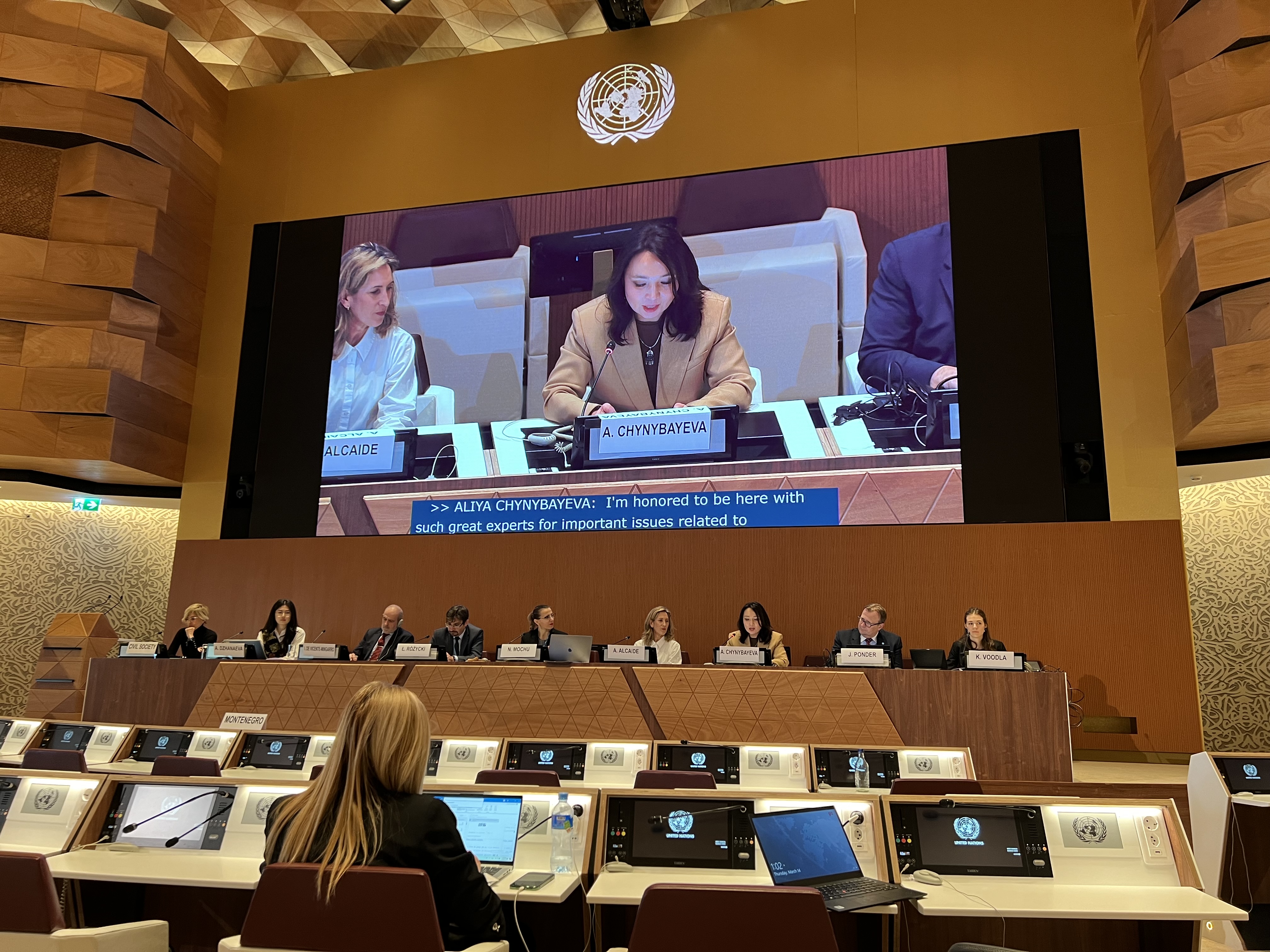
On March 14, Aliya Chynybayeva, CEO of Halyk Bank Kyrgyzstan, attended the roundtable on building effective partnerships for digital transformation, underscoring that empowering women in the digital world is crucial for inclusive development and hihlighting four key directions for progress. “Women and girls should be empowered in the digital sphere through the following four directions: access to digital tools; investing in digital skills and training for women; leadership opprtunitiies for women in digital transformation; and more investment in evidence-based initiatives,” concluded Aliya Chynybayeva.
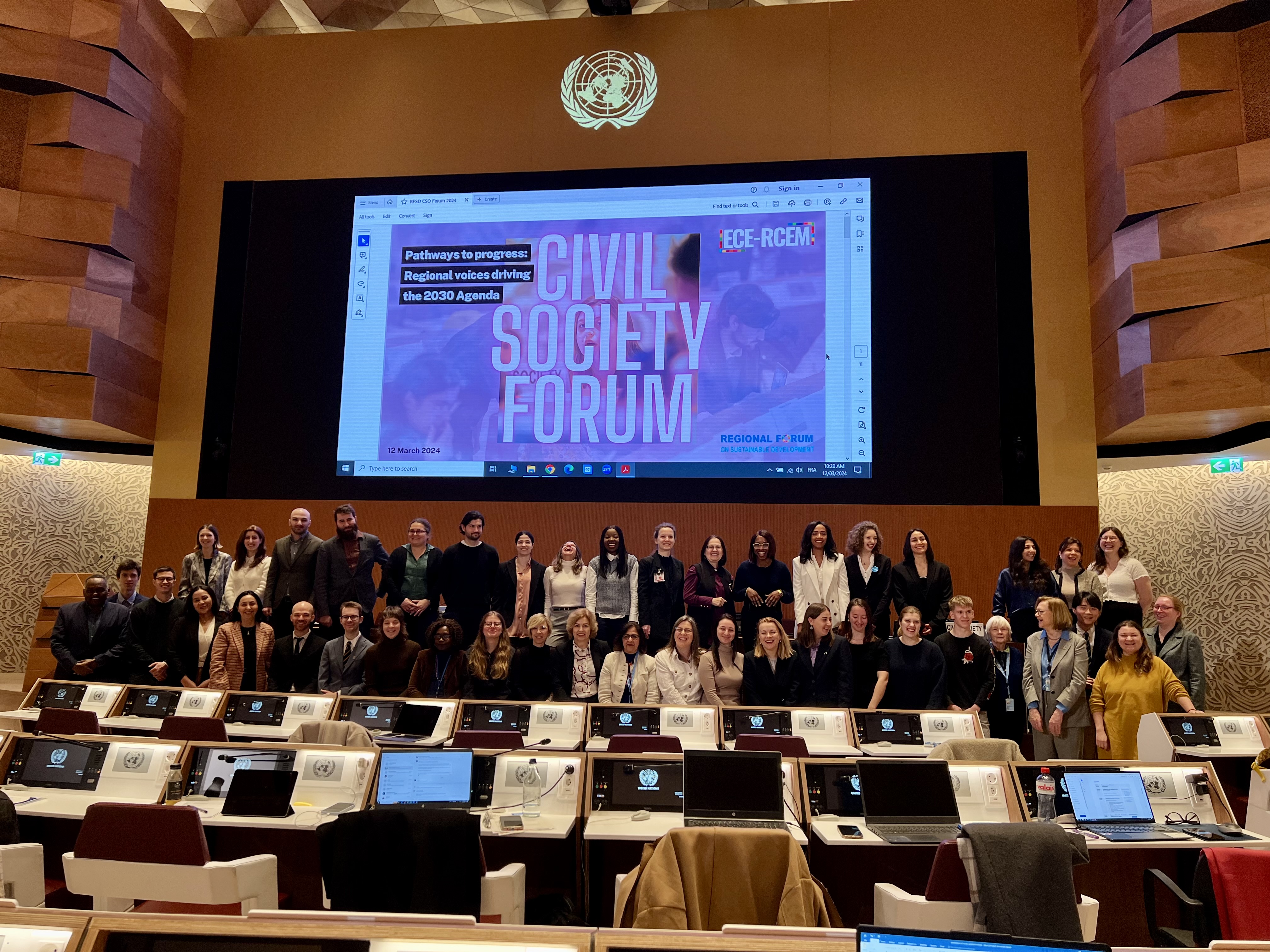
RFSD is organized annually by UNECE, in collaboration with other United Nations entities, including UN Women ECA, as well as civil society, youth groups, parliamentarians, the private sector, local governments and mayors, academia and other international and regional organizations operating in the region.